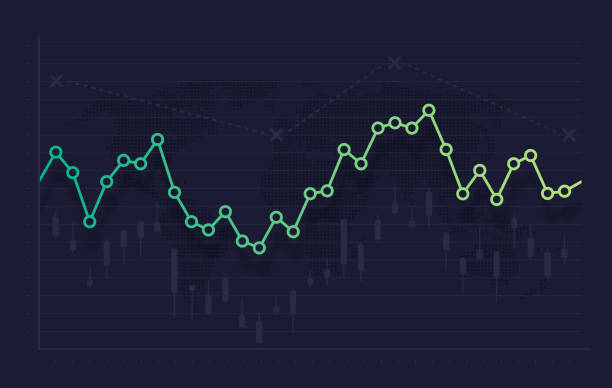
The past two years have been rocky for some space investors, but not all.
Constellations spoke with Matt O’Connell, operating partner at DCVC, about the current investment landscape, the recovery ahead and some of the technology and market trends that seasoned investors like himself are excited about.
O’Connell said one reason that space investment plummeted from its 2021 high of $47 billion to $20 billion in 2022, was the combination of bleak financials news, bank failures and threats of recession that put newcomers off. Experienced investors, on the other hand, saw it for the good by winnowing out weaker companies and as a time to buy.
“Frankly, from an experienced investor’s point of view, a market dip is a buying opportunity. You just have to buy the right things and you have to understand the fundamentals of the business and not buy on trends.”
He added that part of what went wrong a couple years ago was the excitement that SPACs created for inexperienced investors, mentioning a billion-dollar valuation for a space company that had never gone to space as an example.
Although the recovery may not be occurring at the same pace as before, O’Connell made clear that space as an industry is here to stay, citing its widespread use, from GPS for navigation and streaming entertainment on screens, to the VSATs atop gas stations that process all those credit card transactions.
An Open-Source War
More significantly, he pointed to the headlines from Ukraine. He called it the first “open-source war” due to the extensive use of commercial imagery by the defense and intel communities to track Russian deployment and activity, which showed how much commercial industry was adding to and supplementing government capabilities.
“It’s documented how that increased awareness of what the Russians are doing has helped the Ukrainians. I get very excited at all the new technologies that are coming out to help the defense and intel people.”
Keeping the Powder Dry
Having grown up doing M&A on Wall Street, O’Connell now has the perspective of an early-stage seed and series A investor, having written the first check for several companies.
He explained that at this time of “economic constraint,” investors were preferring to double down on their winners and not follow up on those not showing as much strength.
He made the point by explaining the term “dry powder.”
“It’s not just the first check you put in…it’s can you support your companies?”
By example, he said his fund entered early into Rocket Labs and Planet Labs but continued with follow-on funding. “The first check might not be that big. $3 million, $5 million, but then we can put in up to $50 million in some companies over time,” adding that Capella Space was one such company they kept writing checks for as they watched it grow.
The Batting Average
On the numbers game, O’Connell borrowed a quote from investing legend Warren Buffett about not having to bat a thousand but making one very good decision every five years.
“That’s kind of the way venture works. We figure we lose money on three, break even on three, make money on three, but then you have one runaway success.”
Going into the Deep Tech
To find those home runs, O’Connell said they focus on investing in early stage, “deep tech” entrepreneurs, which he explained as entrepreneurs that are targeting trillion-dollar sectors, trying to disrupt them using data and computation.
“Software is taking over everything. Everything has software,” he said about their investment strategy. “Everything we look at is software.”
In contrast he said it’s hard to scale hardware, to get the same margin, and to grow it to a venture size return. “It’s much easier to do that with software and data and computation.”

With so much data pouring in, O’Connell said there was a need to standardize, synthesize and share data securely, something that sounds easy but is harder to do.
“Software’s going to continue to grow both in space and on the ground.”
QA for AI
On where artificial intelligence (AI) fits in, O’Connell said there are some things that AI can do now, such as speeding up analytics. For example, to task a search for trouble over land, the AI could eliminate 60% of the imagery where the world is water.
But on larger matters, he said that before people make big investment decisions or military commitments, they will want a human in the loop to point out where it doesn’t make sense and if someone checked the variables.
“And by the way, we have studied this in our firm quite a lot and checking the model and ... not everybody’s doing quality control in AI yet. A lot of them are just building it as fast as they can, but not taking the time to do quality control,” he said about the need for a separate engine for quality control.
Excitement Ahead
O’Connell said what gets his “blood pumping in the morning,” is that he believes the companies he’s investing in are helping to defend Ukraine. From one company whose satellite imagery takes pictures of the Russians at night to another whose autonomous drones sense incoming Russian drones and go up and catch them, “What’s not to love about that?”
“With no looming outbreak of peace. And until peace is widespread, we like to think that our companies are helping defense and intel people making faster, smarter decisions.”
Advice for Those Who Want Money
Asked what companies seeking investment can do to motivate investors like himself, O’Connell said that if they don’t show a clear path to profitability or an exit, they’re not interested.

He added, they need to have a really good idea attacking a big problem. He related a quote from Larry Page of Google that it should be something like a toothbrush that’s used all the time. “That’s a good idea, attacking a common problem. So we want people who are really serious about their problem.”
O’Connell said he wants people to be thinking about these topics because, “a rising tide lifts all boats and makes the world a better place for all of us.”
For more insights on the trends investors like O’Connell are pursuing and the advice for entrepreneurs, click here.
